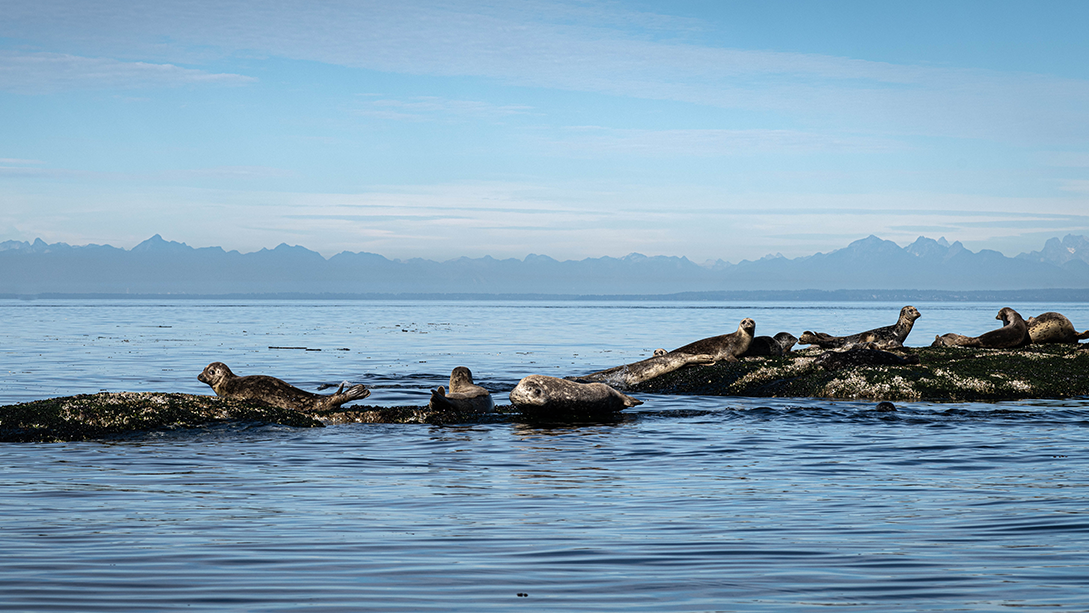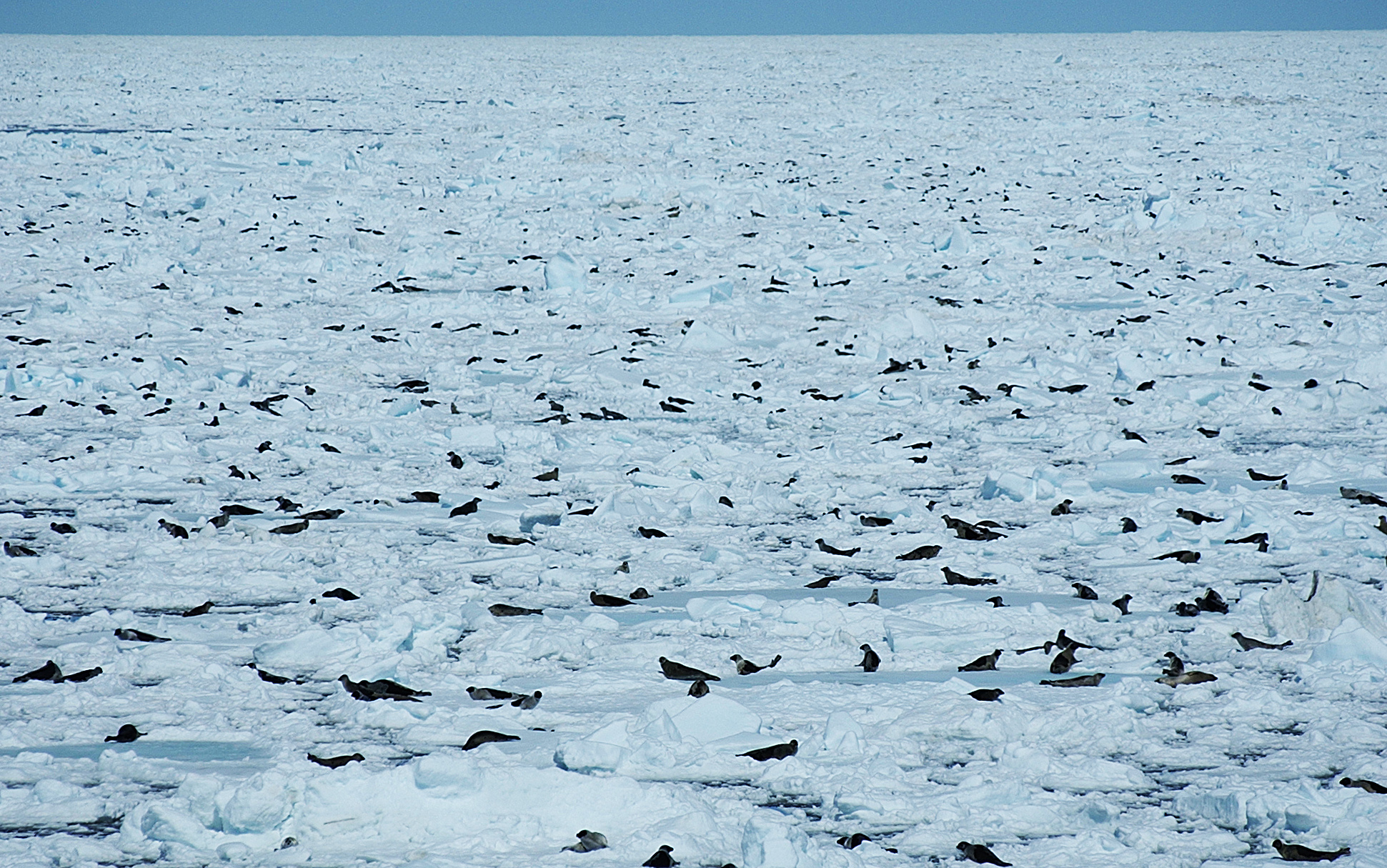Europe must repeal its unjust seal products ban: Senators Manning, Busson and Duncan

Tags
For the first time, the European Union is reviewing its 15-year-old import ban on seal products.
Implemented in 2009, the ban prohibits the general sale of seal products in EU markets with two exceptions: the sale of seal products derived from Inuit or Indigenous harvests, and the “occasional” importation of seal products for personal use by travellers.
We are three Canadian senators who represent the country’s East, West and North and who recently spent more than a year studying Canada’s seal populations, seal harvest and seal products industry as members of the Senate Committee on Fisheries and Oceans.
We are convinced that the EU’s import ban on seal products is not “fit for purpose.” The socio-economic impacts of this ban have been disastrous for communities along Canada’s East Coast and in Nunavut, and the conversation around sealing is rife with misinformation.
Our May 2024 report, Sealing the Future: A Call to Action, contains our study’s findings in full and calls for the sustainable revitalization of Canada’s seal industry through nine recommendations to the Government of Canada — one of which relates to the removal of international trade barriers on Canadian seal products.
As it evaluates the EU’s 2009 ban, the European Commission is looking to answer specific questions. For example, it wants to identify the legislation’s effects, whom the ban has affected — including stakeholders and “vulnerable” groups — and any “unexpected or unintended effects.”
Our report clearly answers those questions from the Canadian perspective, and we have submitted it to the EU as evidence.
Notably, our committee found that seal product import bans, implemented by more than 30 countries globally, have played a major role in pushing Canada’s once-vibrant seal industry to the brink of collapse.
The trade bans caused the price and demand for Canadian seal products — like pelts, meat, oil and artisan crafts — to plummet in the 2000s. The European ban has been the most economically significant, our report notes.
This seismic turn of events has had devastating consequences for the livelihoods, economies and well-being of remote, coastal and Indigenous communities across Canada — especially in Nunavut, where 90 per cent of the seal harvest occurs. Many are smaller communities with few industries and economic opportunities. Our committee heard that poverty and suicide rates in Northern and Inuit communities increased dramatically in the aftermath of the import bans.
Seal products have been central to the cultures and way of life of Inuit and First Nations communities for thousands of years; however, with the diminished harvest — and the unwarranted stigma attached to it — traditional knowledge and skills are disappearing.
 Thousands of seals dot a vast expanse of ice floes off the coast of Newfoundland and Labrador. (Photo credit: Canadian Seal Products)
Thousands of seals dot a vast expanse of ice floes off the coast of Newfoundland and Labrador. (Photo credit: Canadian Seal Products)
Today, the sealing industry is only economically viable for a small number of people. The EU’s import exemption for Indigenous harvested seal products has not helped sealers and producers in Canada regain full access to the EU market, according to media reports.
Only good things can come from repealing the ban on seal products.
Millions of EU residents and citizens would regain access to these humanely harvested, sustainable and valuable products — and in doing so, support smaller economies and the preservation of Indigenous cultures and skills. Seal meat is a high-quality protein. Seal oil health supplements are a fantastic source of Omega-3 fatty acids — so-called “healthy fats” — for both humans and pets. Seal pelts have long kept people warm in harsh climates.
Another positive consequence of revitalized trade would be the maintenance of healthy ocean ecosystems and improved seal population management. Our committee heard testimony that some seals can consume 22 times as much fish as are commercially harvested, and that seal populations, depending on the species, have recovered, stabilized or continue to grow.
Finally, we believe the European Commission must consider what inspired its general seal products ban in the first place and whether those concerns hold water in the current context. The seal industry has long been victim of propaganda campaigns built on outright lies. Those adorable baby seals with white fur and melting dark eyes? It’s been illegal to harvest them since 1987.
The truth is, Canada’s seal harvesting practices today are “among the best in the world.”
We urge anyone with a stake in the sealing and fishing industries — and anyone who has been harmed by the EU ban — to make a submission to the call for evidence before the August 7 deadline. This is your golden opportunity to help turn the tide.
While a policy change today won’t undo 15 years of harm, we remain optimistic the EU’s review will follow the evidence and reverse this misguided and ill-founded ban.
Senator Fabian Manning represents Newfoundland and Labrador and is chair of the Senate Committee on Fisheries and Oceans.
Senator Bev Busson represents British Columbia and is deputy chair of the committee.
Senator Pat Duncan represents the Yukon and is a member of the committee.
This article was published in the EUobserver on August 8, 2024.
For the first time, the European Union is reviewing its 15-year-old import ban on seal products.
Implemented in 2009, the ban prohibits the general sale of seal products in EU markets with two exceptions: the sale of seal products derived from Inuit or Indigenous harvests, and the “occasional” importation of seal products for personal use by travellers.
We are three Canadian senators who represent the country’s East, West and North and who recently spent more than a year studying Canada’s seal populations, seal harvest and seal products industry as members of the Senate Committee on Fisheries and Oceans.
We are convinced that the EU’s import ban on seal products is not “fit for purpose.” The socio-economic impacts of this ban have been disastrous for communities along Canada’s East Coast and in Nunavut, and the conversation around sealing is rife with misinformation.
Our May 2024 report, Sealing the Future: A Call to Action, contains our study’s findings in full and calls for the sustainable revitalization of Canada’s seal industry through nine recommendations to the Government of Canada — one of which relates to the removal of international trade barriers on Canadian seal products.
As it evaluates the EU’s 2009 ban, the European Commission is looking to answer specific questions. For example, it wants to identify the legislation’s effects, whom the ban has affected — including stakeholders and “vulnerable” groups — and any “unexpected or unintended effects.”
Our report clearly answers those questions from the Canadian perspective, and we have submitted it to the EU as evidence.
Notably, our committee found that seal product import bans, implemented by more than 30 countries globally, have played a major role in pushing Canada’s once-vibrant seal industry to the brink of collapse.
The trade bans caused the price and demand for Canadian seal products — like pelts, meat, oil and artisan crafts — to plummet in the 2000s. The European ban has been the most economically significant, our report notes.
This seismic turn of events has had devastating consequences for the livelihoods, economies and well-being of remote, coastal and Indigenous communities across Canada — especially in Nunavut, where 90 per cent of the seal harvest occurs. Many are smaller communities with few industries and economic opportunities. Our committee heard that poverty and suicide rates in Northern and Inuit communities increased dramatically in the aftermath of the import bans.
Seal products have been central to the cultures and way of life of Inuit and First Nations communities for thousands of years; however, with the diminished harvest — and the unwarranted stigma attached to it — traditional knowledge and skills are disappearing.
 Thousands of seals dot a vast expanse of ice floes off the coast of Newfoundland and Labrador. (Photo credit: Canadian Seal Products)
Thousands of seals dot a vast expanse of ice floes off the coast of Newfoundland and Labrador. (Photo credit: Canadian Seal Products)
Today, the sealing industry is only economically viable for a small number of people. The EU’s import exemption for Indigenous harvested seal products has not helped sealers and producers in Canada regain full access to the EU market, according to media reports.
Only good things can come from repealing the ban on seal products.
Millions of EU residents and citizens would regain access to these humanely harvested, sustainable and valuable products — and in doing so, support smaller economies and the preservation of Indigenous cultures and skills. Seal meat is a high-quality protein. Seal oil health supplements are a fantastic source of Omega-3 fatty acids — so-called “healthy fats” — for both humans and pets. Seal pelts have long kept people warm in harsh climates.
Another positive consequence of revitalized trade would be the maintenance of healthy ocean ecosystems and improved seal population management. Our committee heard testimony that some seals can consume 22 times as much fish as are commercially harvested, and that seal populations, depending on the species, have recovered, stabilized or continue to grow.
Finally, we believe the European Commission must consider what inspired its general seal products ban in the first place and whether those concerns hold water in the current context. The seal industry has long been victim of propaganda campaigns built on outright lies. Those adorable baby seals with white fur and melting dark eyes? It’s been illegal to harvest them since 1987.
The truth is, Canada’s seal harvesting practices today are “among the best in the world.”
We urge anyone with a stake in the sealing and fishing industries — and anyone who has been harmed by the EU ban — to make a submission to the call for evidence before the August 7 deadline. This is your golden opportunity to help turn the tide.
While a policy change today won’t undo 15 years of harm, we remain optimistic the EU’s review will follow the evidence and reverse this misguided and ill-founded ban.
Senator Fabian Manning represents Newfoundland and Labrador and is chair of the Senate Committee on Fisheries and Oceans.
Senator Bev Busson represents British Columbia and is deputy chair of the committee.
Senator Pat Duncan represents the Yukon and is a member of the committee.
This article was published in the EUobserver on August 8, 2024.


